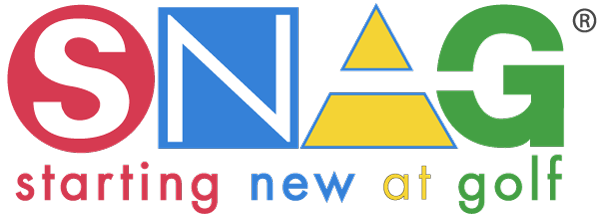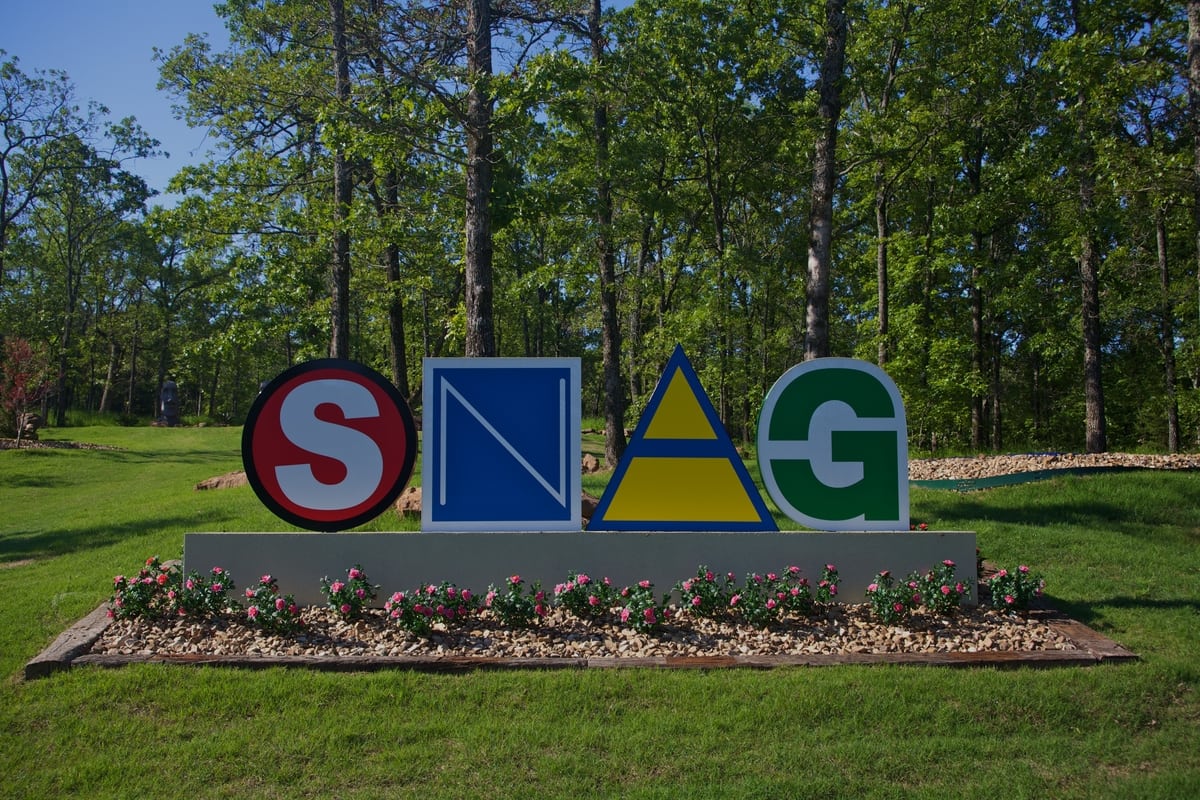
SNAG Pro Word Cues
How to use SNAG® COACH Word Cues
1. Repetition:
Use the word cues consistently to reinforce learning 2. Simplicity:
Keep instructions simple and focus on one or two cues at a time.3. Visualization:
Help students visualize the cues by demonstrating them. 4. Positive Reinforcement:
Praise students when they use the cues correctly.
Launcher
The term used for the SNAG club, designed to "launch" the ball.
Cue: "Launch the ball"
Roller
The term for the SNAG ball, emphasizing its role in rolling to the target.
"Roll it to the target"
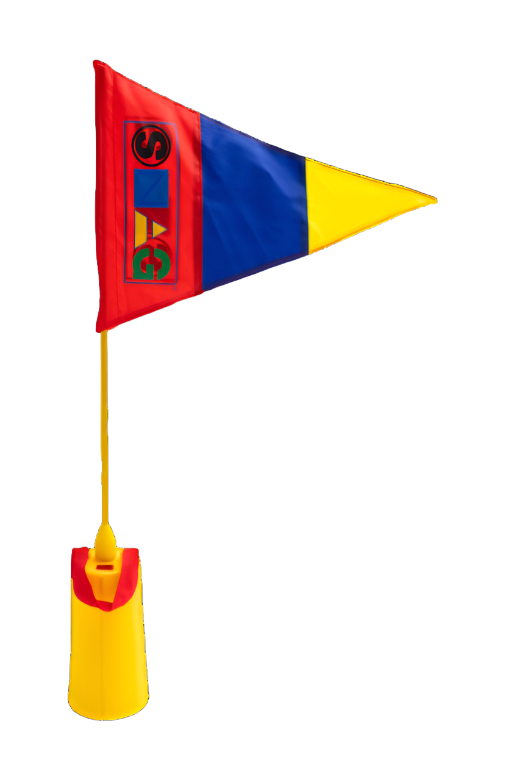
Flagsticky
The target for SNAG golf, often with a Velcro surface to catch the ball.
"Aim for the Flagsticky"
Grip
Refers to how students should hold the Launcher.
"Left on Yellow™, Connect™ , Right On Red!™
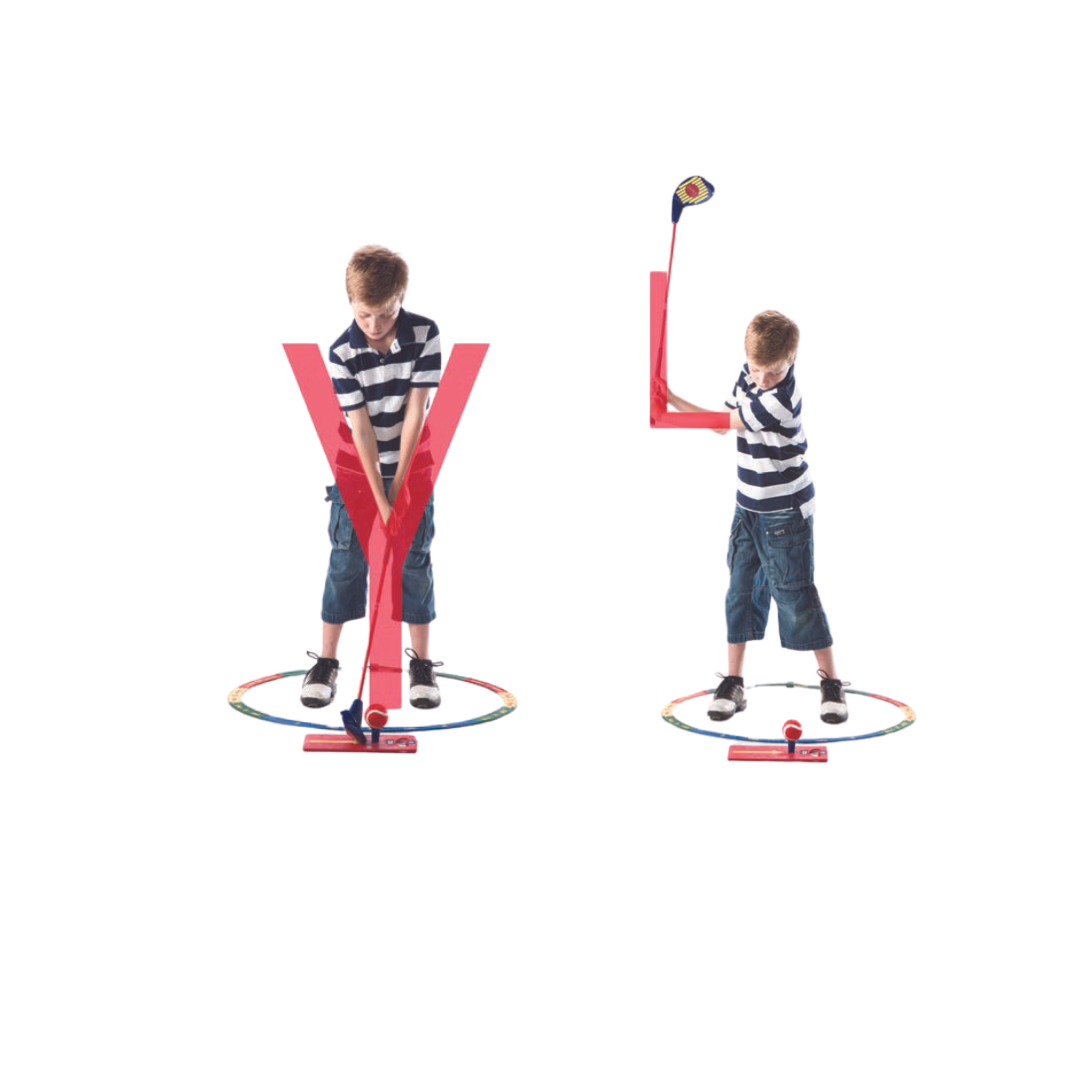
Y to L
A visual cue for the position of the arms and club during the swing, forming a "Y" at address and an "L" at the top of the backswing.
"Start with a Y, swing to an L"
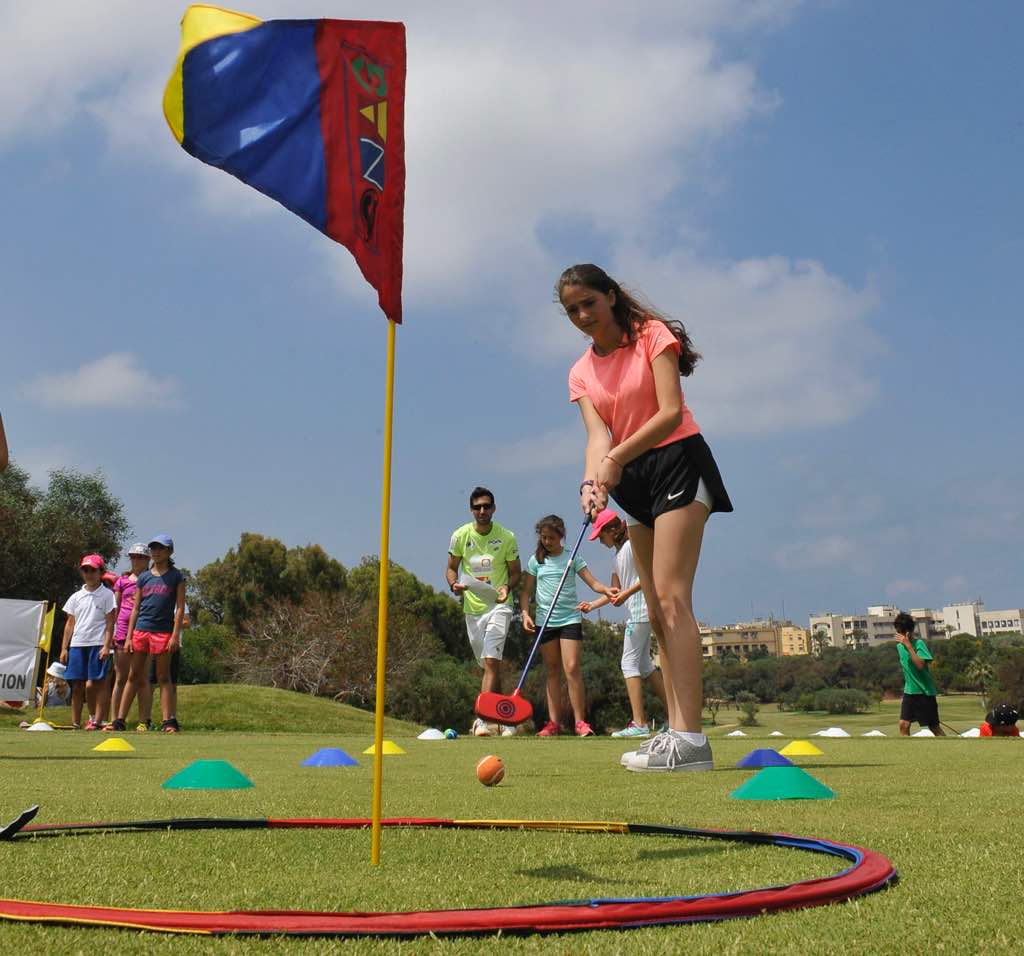
Eyes on the Ball
Reminds students to keep their eyes focused on the ball throughout the swing.
"Dot your Eye"
SNAG Golf Dictionary
Launcher
The modified club used in SNAG® to hit the ball. Designed for beginners to easily grasp the basic mechanics of a golf swing.
Roller
The SNAG® term for the ball used in putting. It emphasizes the rolling motion required for accurate putting.
Flagsticky
A target used in SNAG with a Velcro surface to catch the ball, making it easier for beginners to see where their shots land.
Grip
Instruction on how to hold the SNAG® Launcher, typically described as holding it like a handshake for better control and comfort.
Stance
The recommended positioning of the feet and body before making a swing, ensuring stability and balance.
Tick-Tock
A word cue describing the back-and-forth motion of the swing, similar to a clock’s pendulum, helping beginners understand the rhythm of the swing.
Y to L
A visual cue for the position of the arms and club during the swing, forming a "Y" at address and an "L" at the top of the backswing.
Brush the Grass
An instruction encouraging players to make contact with the ground as they swing, ensuring a proper follow-through.
SNAG® Zone
A designated area where players aim to send the ball, helping to develop accuracy and consistency in their shots.
Small Coaching Kits
These kits include essential SNAG® equipment tailored for small groups, perfect for personalized instruction and practice.
Large Coaching Kits
Comprehensive kits designed for larger groups, including multiple sets of SNAG® equipment to accommodate extensive training sessions.
Connectors
Tools used to link different SNAG® elements, enhancing the flexibility and creativity of practice setups.
Spots
Markers used to indicate positions on the practice area, helping students understand and maintain correct positioning.
Cones
Brightly colored cones used to set boundaries and targets, making practice sessions visually engaging and organized.
Large Arrows
Visual aids that guide students in the direction of their swings, improving alignment and accuracy.
Small Arrows
Similar to large arrows, these smaller aids help with precision in short-distance shots and finer adjustments.
SNAG®-a-Green
Portable putting greens that simulate real golf course conditions, enhancing the putting practice experience.
SNAG® Launch Pad
A designated hitting surface that provides consistent conditions for practicing full shots, ensuring safety and effectiveness.
SNAG® Roller Pad
A practice surface designed specifically for putting, helping students develop smooth and accurate rolling techniques.
Launch Stick
A training aid that helps beginners understand the correct launching technique, focusing on swing path and follow-through.
Training Poles
Poles used to create various practice drills and obstacles, enhancing the versatility of SNAG training sessions.
Ball Bucket
A container for collecting and storing SNAG balls, keeping the practice area tidy and organized.
Safety Zones
Designated areas that ensure students practice in a safe environment, minimizing the risk of accidents and injuries.
Color Bands
Visual aids used to group students or equipment, facilitating organized and efficient practice sessions.
